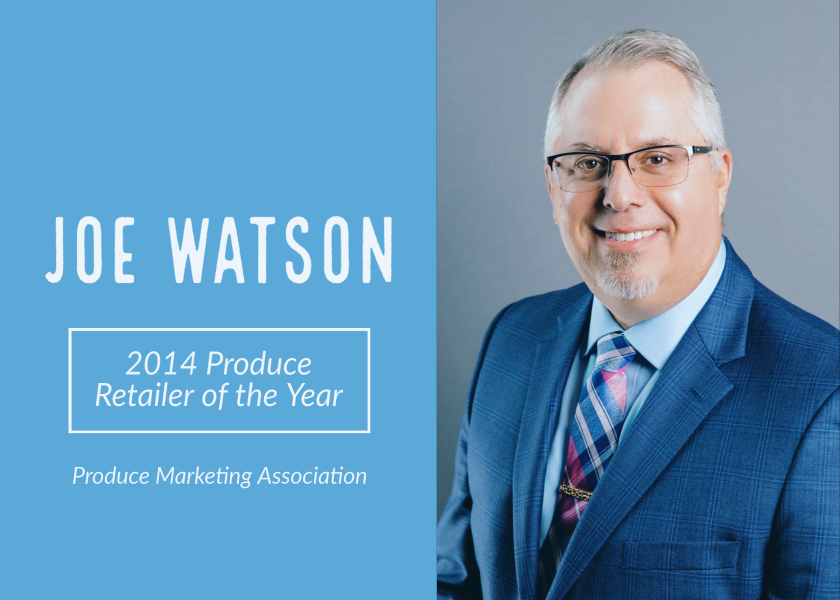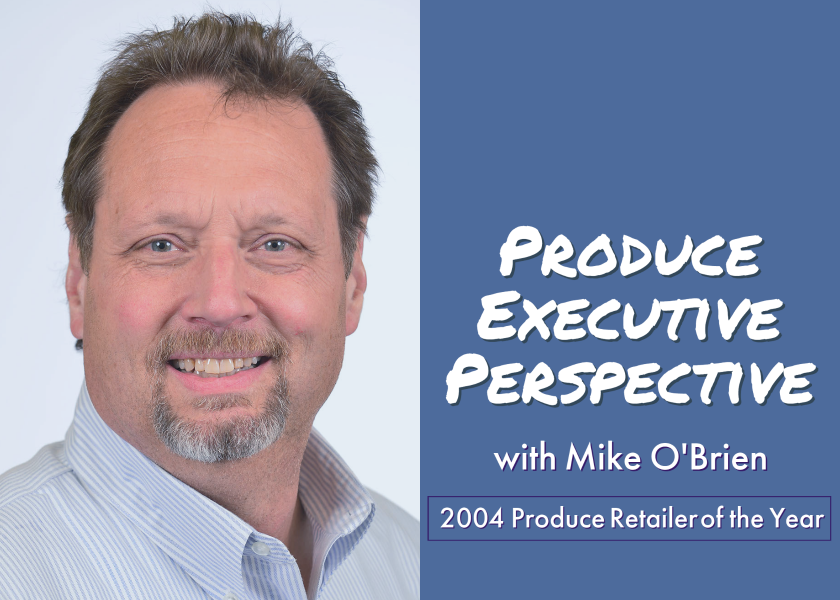We've got quite a lineup for you in this issue of PMG magazine. Along with a slew of commodity-focused features, the magazine features contributed columns from a number of respected industry leaders.
Check out the digital edition here.
Here are excerpts from a few of the pieces you'll find in this latest issue.
Recruiting and retaining the next generation of produce leaders
"There is a negative narrative which has impacted retailers' ability to attract, develop and retain staff over the past number of years, and now it has reached possibly a critical stage at the worst possible time, as so much change and opportunity at retail is taking place," writes Joe Watson, former director of produce for Rouses Markets and now vice president of membership and engagement with PMA.
"Both within their organizations and beyond them, how can retailers create awareness of and demand for the opportunities that exist through a career in produce retail?"

The opportunity for better-tasting fruit
"I understand logistics and storage is an imperfect world. However, I want everyone to understand that temperature abuse is the number one cause of shrink, disease, scoreable inspection disorders, and poor flavor and texture," writes Dennis Kihlstadius, an expert on post-harvest handling of climacteric fruit and the owner of Produce Technical Services.
"We are talking millions of dollars every year throughout the supply chain with all produce items. It is one of the factors we can actually control if we really want to. We have learned to store and ship bananas and tomatoes correctly over the years. What about the other temperature-sensitive produce items?"
Read Dennis' full column here.

Why produce retails and ads don't look the same as last year
"The ramifications of COVID-19 on our business have manifested themselves in ways many of us who write ads did not anticipate," writes Steve Patt, a member of the leadership team for Tourtellot and Co. "Those consequences include increases in the cost of doing business as a result for growers, packers, truckers and wholesale distributors.
"The result has been an uptick in negative noise. We can hear – and feel – the tension and the disappointment in the conversations we have with many retailers as they plan out ads. The friction is understandable and predictable. There is always a little price tension between buyers and sellers. That being said, the pandemic has raised that tension to an uncomfortable level in recent weeks as the reality of doing business in the time of COVID-19 sets in.
"However, my friends, this is where we can shine as an industry."
Read Steve's full column here.

What makes a great category manager
"There are many factors that are important for the profitability of a great produce department," writes Mike O'Brien, former vice president of produce for Schnuck Markets and now president of O'Brien Innovations. "We focus most of our conversations on the buying and merchandising of the produce that we sell. We talk about sales and controlling shrink.
"What ties all these topics together into a nice profitable bow is category management, the study of how different SKUs in a department interact with each other. That information guides decisions on assortment, everyday retails, promotion, store sets and more, and it helps the department align with overall company business goals. So what makes a great produce category manager?"

Late trucks and how to shift the odds in your favor
"Fewer things in life are as certain as death, taxes and late trucks," writes Armand Lobato, longtime produce retail veteran and current foodservice promotion director for the Idaho Potato Commission.
"The reasons for delayed deliveries can range from understandable causes such as Department of Transportation delays, mechanical breakdowns, bad weather or washed-out roads, to the innumerable human error factors that could fill this page and about ten more.
"Late trucks can put a produce buyer into serious stress mode, especially if he or she needs the produce for shipping out the same day. What can a buyer do to prepare for – and hopefully avoid – this all-too common scenario? Here are a few thoughts."
Read Armand's full column here.


